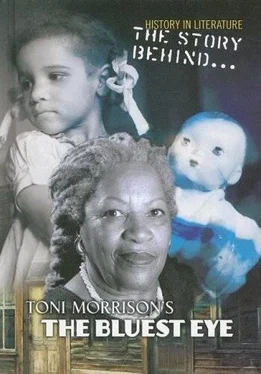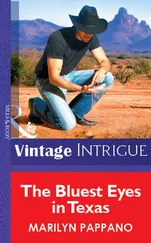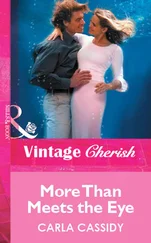Grown people looked away; children, those who were not frightened by her, laughed outright. The damage done was total. She spent her days, her tendril, sap green days, walking up and down, up and down, her head jerking to the beat of a drummer so distant only she could hear. Elbows bent, hands on shoulders, she flailed her arms like a bird in an eternal, grotesquely futile effort to fly. Beating the air, a winged but grounded bird, intent on the blue void it could not reach-could not even see-but which filled the valleys of the mind. We tried to see her without looking at her, and never, never went near. Not because she was absurd, or repulsive, or because we were frightened, but because we had failed her. Our flowers never grew. I was convinced that Frieda was right, that I had planted them too deeply. How could I have been so sloven? So we avoided Pecola Breedlove-forever.
And the years folded up like pocket handkerchiefs. Sammy left town long ago; Cholly died in the workhouse; Mrs. Breedlove still does housework. And Pecola is somewhere in that little brown house she and her mother moved to on the edge of town, where you can see her even now, once in a while. The birdlike gestures are worn away to a mere picking and plucking her way between the tire rims and the sunflowers, between Coke bottles and milkweed, among all the waste and beauty of the world-which is what she herself was. All of our waste which we dumped on her and which she absorbed. And all of our beauty, which was hers first and which she gave to us. All of us-all who knew her-felt so wholesome after we cleaned ourselves on her. We were so beautiful when we stood astride her ugliness. Her simplicity decorated us, her guilt sanctified us, her pain made us glow with health, her awkwardness made us think we had a sense of humor. Her inarticulateness made us believe we were eloquent. Her poverty kept us generous. Even her waking dreams we used-to silence our own nightmares. And she let us, and thereby deserved our contempt. We honed our egos on her, padded our characters with her frailty, and yawned in the fantasy of our strength. And fantasy it was, for we were not strong, only aggressive; we were not free, merely licensed; we were not compassionate, we were polite; not good, but well behaved. We courted death in order to call ourselves brave, and hid like thieves from life. We substituted good grammar for intellect; we switched habits to simulate maturity; we rearranged lies and called it truth, seeing in the new pattern of an old idea the Revelation and the Word. She, however, stepped over into madness, a madness which protected her from us simply because it bored us in the end. Oh, some of us "loved" her. The Maginot Line. And Cholly loved her. I'm sure he did. He, at any rate, was the one who loved her enough to touch her, envelop her, give something of himself to her. But his touch was fatal, and the something he gave her filled the matrix of her agony with death. Love is never any better than the lover. Wicked people love wickedly, violent people love violently, weak people love weakly, stupid people love stupidly, but the love of a free man is never safe. There is no gift for the beloved. The lover alone possesses his gift of love. The loved one is shorn, neutralized, frozen in the glare of the lover's inward eye.
And now when I see her searching the garbage-for what? The thing we assassinated? I talk about how I did not plant the seeds too deeply, how it was the fault of the earth, the land, of our town.
I even think now that the land of the entire country was hostile to marigolds that year. This soil is bad for certain kinds of flowers. Certain seeds it will not nurture, certain fruit it will not bear, and when the land kills of its own volition, we acquiesce and say the victim had no right to live. We are wrong, of course, but it doesn't matter. It's too late. At least on the edge of my town, among the garbage and the sunflowers of my town, it's much, much, much too late.
We had just started elementary school. She said she wanted blue eyes. I looked around to picture her with them and was violently repelled by what I imagined she would look like if she had her wish. The sorrow in her voice seemed to call for sympathy, and I faked it for her, but, astonished by the desecration she proposed, I "got mad" at her instead. Until that moment I had seen the pretty, the lovely, the nice, the ugly, and although I had certainly used the word "beautiful," I had never experienced its shock-the force of which was equaled by the knowledge that no one else recognized it, not even, or especially, the one who possessed it. It must have been more than the face I was examining: the silence of the street in the early afternoon, the light, the atmosphere of confession. In any case it was the first time I knew beautiful. Had imagined it for myself. Beauty was not simply something to behold; it was something one could do. The Bluest Eye was my effort to say something about that; to say something about why she had not, or possibly ever would have, the experience of what she possessed and also why she prayed for so radical an alteration. Implicit in her desire was racial self-loathing. And twenty years later I was still wondering about how one learns that. Who told her? Who made her feel that it was better to be a freak than what she was? Who had looked at her and found her so wanting, so small a weight on the beauty scale? The novel pecks away at the gaze that condemned her. The reclamation of racial beauty in the sixties stirred these thoughts, made me think about the necessity for the claim.
Why, although reviled by others, could this beauty not be taken for granted within the community? Why did it need wide public articulation to exist? These are not clever questions. But in 1962 when I began this story, and in 1965 when it began to be a book, the answers were not as obvious to me as they quickly became and are now. The assertion of racial beauty was not a reaction to the self-mocking, humorous critique of cultural/racial foibles common in all groups, but against the damaging internalization of assumptions of immutable inferiority originating in an outside gaze. I focused, therefore, on how something as grotesque as the demonization of an entire race could take root inside the most delicate member of society: a child; the most vulnerable member: a female. In trying to dramatize the devastation that even casual racial contempt can cause, I chose a unique situation, not a representative one. The extremity of Pecola's case stemmed largely from a crippled and crippling family-unlike the average black family and unlike the narrator's. But singular as Pecola's life was, I believed some aspects of her woundability were lodged in all young girls. In exploring the social and domestic aggression that could cause a child to literally fall apart, I mounted a series of rejections, some routine, some exceptional, some monstrous, all the while trying hard to avoid complicity in the demonization process Pecola was subjected to. That is, I did not want to dehumanize the characters who trashed Pecola and contributed to her collapse. One problem was centering: the weight of the novel's inquiry on so delicate and vulnerable a character could smash her and lead readers into the comfort of pitying her rather than into an interrogation of themselves for the smashing. My solution-break the narrative into parts that had to be reassembled by the reader-seemed to me a good idea, the execution of which does not satisfy me now. Besides, it didn't work: many readers remain touched but not moved. The other problem, of course, was language. Holding the despising glance while sabotaging it was difficult. The novel tried to hit the raw nerve of racial self-contempt, expose it, then soothe it not with narcotics but with language that replicated the agency I discovered in my first experience of beauty. Because that moment was so racially infused (my revulsion at what my school friend wanted: very blue eyes in a very black skin; the harm she was doing to my concept of the beautiful), the struggle was for writing that was indisputably black. I don't yet know quite what that is, but neither that nor the attempts to disqualify an effort to find out keeps me from trying to pursue it. Some time ago I did the best job I could of describing strategies for grounding my work in race-specific yet race free prose. Prose free of racial hierarchy and triumphalism. Parts of that description are as follows. The opening phrase of the first sentence, "Quiet as it's kept," had several attractions for me.
Читать дальше











